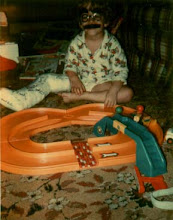In December 2005, which was the 25th anniversary of John Lennon's murder, Newsweek ran an article about the occasion. In it, musician Dave Matthews was quoted as saying, "Even if he'd written only 'Imagine,' he would have been the greatest songwriter of all time." That's a bit hyperbolic, but it shows the admiration for the song that Dave has, which I don't think is at all out of place. I don't tend to use the word "art" to describe much of what is done by rock musicians, but this song is an exception. It is (and I contend that the following statement is in no way hyperbolic) an absolutley brilliantly constructed piece of artistry.
John Lennon wrote "Revolution" in 1968. There were, of course, a lot of protest songs, anti-war songs, anti-Establishment songs being written at the time. Various people had publicly called on The Beatles, and other popular groups, to lend their voice to the struggles by speaking out. John certainly championed the basic beliefs of these crowds, but seems to have disagreed with some of their tactics and actions. And, anyone familiar with John would probably guess that he wasn't about to let anyone tell him what to say and how to say it. In response, he came out with "Revolution," with lyrics such as, "but when you talk about destruction, don't you know that you can count me out... but if you want money for people with minds that hate, all I can tell you is brother you have to wait... but if you go carrying pictures of Chairman Mao, you ain't gonna make it with anyone anyhow." This song isn't exactly related to "Imagine," but I think John did make it clear that when he was going to use his music to speak out, he was going to do so in his own way, and not simply join the crowd that was seeking changes.
The next year, he wrote "Give Peace a Chance." Not "Give Us Peace." Not "Live Peace." Not "End the War." Not "Stop All Wars." Give peace a chance. Again, John was going to use his music on his own terms. He wasn't saying, "This is how things should be," though he certainly thought so. He was just saying, "Give it a try." Look at it in a way you've never looked at it before, and see what you think. Certainly this was a departure from a lot of the anti-war songs of the era, which directly advocated the end of the war.
Two years after this, John hit what Dave Matthews and I consider his zenith with "Imagine." He had bigger things on his mind than just the war in Viet Nam, or the student protests and such that he'd been reacting to back in the old days of 1968. John had a much broader, much grander vision of a united, peaceful world. And again... and once again brilliantly... John doesn't tell us what he thinks we should do. He doesn't tell us this is how we should live. (This time, I'm not sure that even John thought that all of this was how we should live. He certainly seemed to enjoy his possessions, for one thing.) All he does is ask us to imagine it. What would it be like if all the things that we use to separate ourselves from each other didn't exist? What would it be like if the things that we used to justify our prejudices and hatreds didn't exist? What would it be like if the things that we used to categorize, judge, label, elevate or denigrate everyone else didn't exist? If all we had was ourselves, each other, and today.
Just as they never really will give peace a chance, I don't think most people ever really will imagine, not even necessarily John's vision in his song, but any way in which the world or their lives could be significantly different than they are today. Which will, of course, keep them from making any real change. The first step is to decide what change you want to make, and you can't do that until you consider the possibilities. If you start by picturing the farthest extent of where you can go, you can then work back towards today to come to where you actually want to go. Until you know where that is, you can't get there, right? I think that by setting the bar where he did, by asking us to consider an idealized, Utopian picture, John was reminding us of the first step to making changes in our lives. Not by telling anyone what they should do, but by inviting everyone to consider what we could do. Imagine.
Monday, April 20, 2009
Subscribe to:
Post Comments (Atom)


1 comment:
Dude, awesome post. You should submit that to a magazine for publication.
Post a Comment